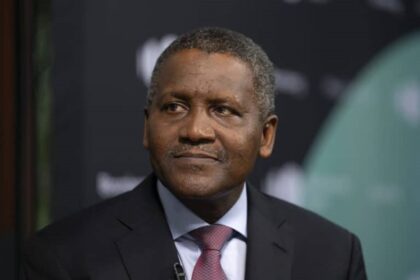United Bank for Africa Plc has launched a special draw for its customers as it headline-sponsored the Lagos International Trade Fair for the seventh consecutive year.
In a statement on Monday, the bank said its sponsorship of the annual trade fair reiterated its commitment to supporting the growth of small and medium-scale businesses for global impact.
The Lagos International Trade Fair is organised by the Lagos Chamber of Commerce and Industry. This year’s edition, which kicked off on Friday at the Tafawa Balewa Square, Onikan, Lagos, will be open to all until 17 November 2025 and is expected to attract thousands of exhibitors, investors, and visitors from across Nigeria and beyond.
UBA said that the special draw was initiated in line with its customer-first philosophy.
Speaking during the opening ceremony of the fair, UBA’s Head of SME Banking, Babatunde Ajayi, underscored the strategic importance of the longstanding partnership with the LCCI while reaffirming that this collaboration is a critical component of the bank’s core mission to mobilise capital as well as empower enterprises of all scales, with a focus on growing SMEs for global impact.
“Our consistent support for the LITF and our strategic, bank-wide initiatives around the AfCFTA are interconnected,” Ajayi stated. “They are two sides of the same coin, and it reflects a deep-seated commitment to building the robust financial architecture required to empower African businesses and enable them to trade seamlessly across borders.”
UBA’s Group Head, Marketing and Corporate Communications, Alero Ladipo, positioned the bank’s participation within the context of its vision for Africa’s economic transformation, as detailed in its recently published white paper on achieving a $4tn continental economy.
“The LITF represents one of several strategic platforms through which UBA is actively translating the ambitious goals of our white paper into tangible action,” Ladipo said. “Our comprehensive roadmap to a $4tn African economy is being built through practical, on-ground engagements such as this, which are focused on growing SMEs for global impact. These are platforms that directly connect businesses, facilitate commerce, and unequivocally demonstrate our resolve to turn a bold vision into a tangible reality for millions.”
Ladipo noted that deep partnerships, complemented by continuous digital innovations and cross-border trade solutions, will lay the groundwork for sustainable, inclusive economic growth that benefits corporations, SMEs, and individual entrepreneurs across Africa.
At the fair, UBA said that it has a dedicated, full-service branch within the grounds, and account holders who perform any transaction, such as deposits, withdrawals, or transfers, at this branch will be instantly eligible to participate in a special “Lucky Dip” draw, which offers them the chance to win a variety of premium prizes.






